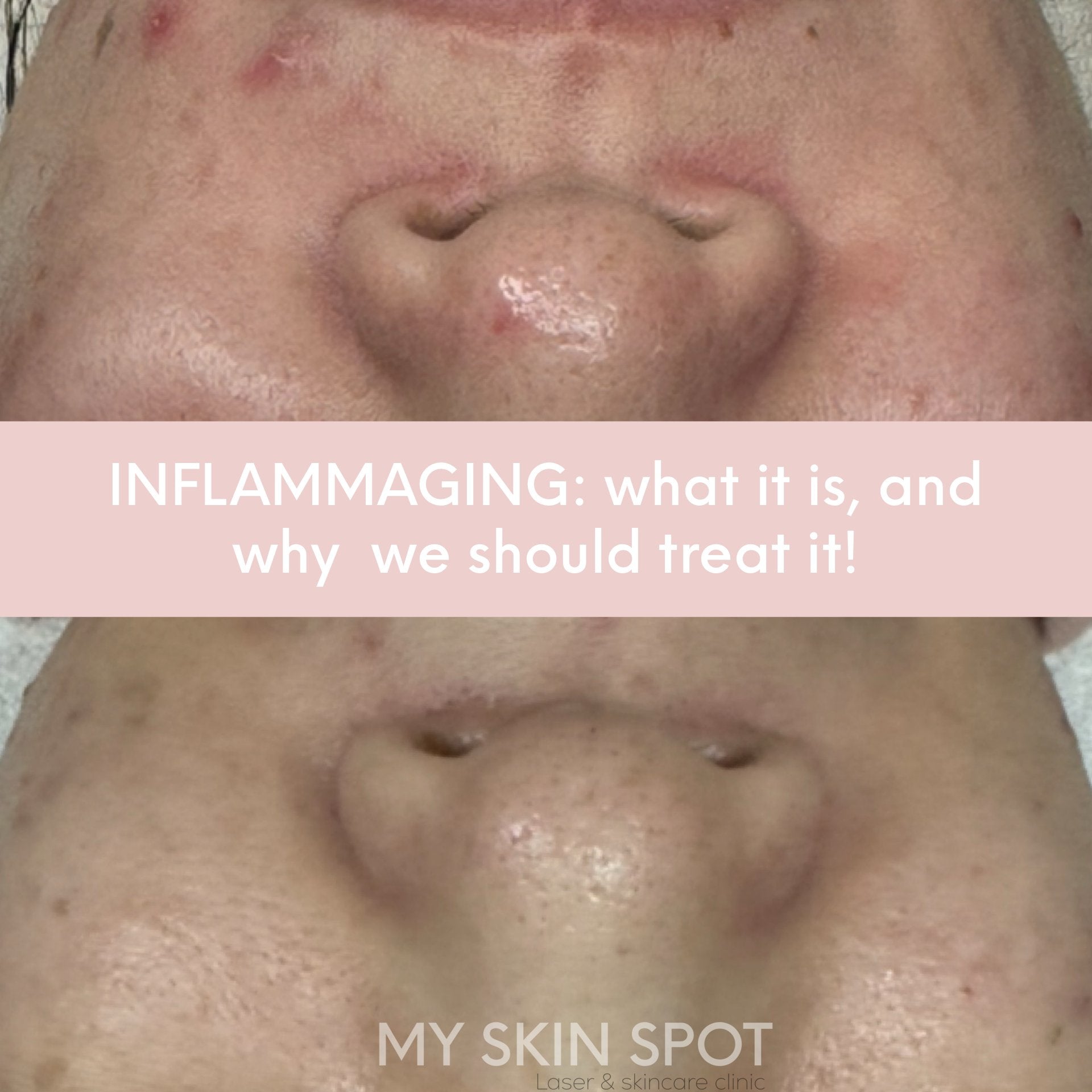ROSACEA
Rosacea is a chronic inflammatory skin disorder affecting primarily the face. This skin condition is characterized by redness, flushing, bumps and pustules, which is more common in fair-skinned and light- eyed individuals aged 30-50. It is thought to be triggered by a variety of factors, including exposure to ultraviolet light, stress, hot and/or spicy foods, and alcohol. It is caused by an accumulation of inflammatory cells in the skin, leading to an exaggerated inflammatory response and visible signs of redness.
Researchers have observed a correlation between demodex mites and rosacea, with Desomex mites frequently observed on patients with rosacea . Gut micro biome imbalances we’re also observed in those with rosacea, such as an overgrowth of Dysbiosis and Campylobacter bacteria. Such an imbalance can lead to an overall lowered immune response and an increase susceptibility to skin irritation and inflammation. Additionally, researchers have found that some individuals with rosacea experience symptom flare-ups after consuming foods high in histamine, which may be caused by disruptions to the microbiome. Thus, it is likely that gut health and the skin micro-flora are related when it comes to the cause and treatment of rosacea. Other causes of rosacea are genetics and extreme environmental changes.
TREATMENT
Rosacea is typically treated with oral or topical medications. Oral medications may include antibiotics such as tetracycline or doxycycline, which can reduce inflammation and help control the bacteria that cause rosacea. Topical medications may include metronidazole, azelaic acid, and brimonidine, which can reduce redness and inflammation. Other treatments can include laser and light therapy, and chemical peels.
Intense Pulse Light (LUMECCA IPL) is an effective treatment for rosacea, because it decreases the swelling and erythema associated with the condition by targeting the underlying causes of inflammation. IPL utilizes specific wavelengths of light to penetrate the skin. This light energizes and destroys the troublesome inflammatory cells, allowing for clearer skin. In addition, IPL has been effective in reducing the appearance of “broken capillaries”, which are present in many patients with rosacea.
To prevent rosacea flare-ups, individuals with this condition should avoid exposure to hot/cold temperatures, spicy foods, alcohol, and ultraviolet light, and use sunscreen and gentle skincare products on a regular basis. Additionally, products with anti-inflammatory ingredients such as green tea extract and niacinamide can help reduce inflammation associated with rosacea. Retinoids help with cellular renewal and reducing rosacea acne. Probiotics are recommended for maintaining a healthy micro-flora.


Comments